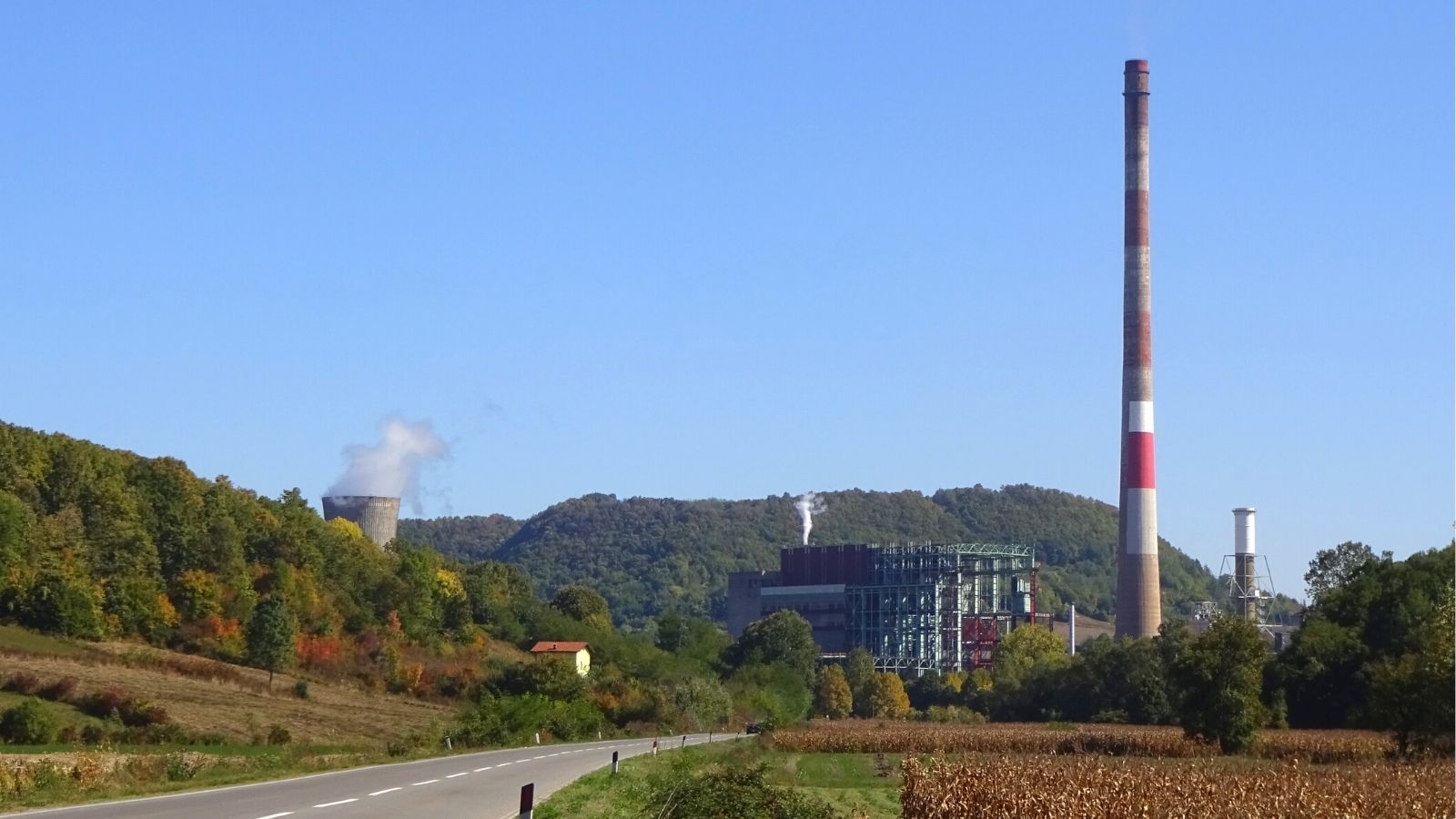Ugljevik power plant, Bosnia and Herzegovina
Commissioned in 1985, the 300 MW coal power plant in Ugljevik, Bosnia and Herzegovina, has become famous for emitting more sulphur dioxide than all of Germany’s coal power plants in 2019.

Stay informed
We closely follow international public finance and bring critical updates from the ground.
Background
To put things in perspective, for every GWh of electricity generated in 2019, Ugljevik emitted 50 tonnes of sulphur dioxide, that is 50 times more than EU’s worst polluter, Bełchatów in Poland, which emitted 1.1 tonnes of SO2/GWh.
The problem is not new, but the paradox is that a financing contract for installing desulphurisation (de-SOx) equipment at Ugljevik was signed more than 14 years ago, and the installation is still not functioning.
Financed by a loan from the Japan International Cooperation Agency (JICA) signed back in 2009, works on the de-SOx equipment started only in 2017 and test operations began in December 2019. It seemed likely that in 2020, SO2 emissions would be significantly lower, finally justifying the EUR 85 million investment.
However, in February 2020 technical problems were reported. The plant’s dust filters, overhauled more than three years ago by the Czech company Termochem at a cost of around EUR 10 million, were faulty, and their proper functioning is reported to be a precondition for desulphurisation. The plant operator spent an additional EUR 100,000 on a study that would show how to address the problem.
In 2021, RiTE Ugljevik, the power plant operator, sought ‘technical assistance’ to obtain the operating permit, adding an extra EUR 100,000 to the costs of this project. The contract was awarded to a company owned by the mayor of Zvornik, raising a host of questions on why the publicly-owned utility RiTE Ugljevik is not capable of obtaining an operating permit itself.
The plant finally obtained an operating permit for the desulphurisation equipment in November 2021. However, its 2022 sulphur dioxide emissions of 85,526 tonnes were barely any lower than those in 2021 (86,774 tonnes). Since 2018, when the Large Combustion Plants Directive entered force under the Energy Community Treaty, there has been no significant decrease in the plant’s emissions.
Out of all Bosnia and Herzegovina’s coal power plants, Ugljevik’s emissions caused the most days of asthmatic symptoms in children, with over 12,000 days in 2020. This is equal to 48 per cent of all such impacts from the country’s coal power plants which are included in the National Emissions Reduction Plan. Ugljevik is also responsible for the highest number of cases of bronchitis in children due to dust emissions, and of hospital admissions because of cardiovascular and respiratory symptoms, with 1,142 cases of the former and 469 of the latter in 2020.
Latest news
I Japan ograničava financiranje termoelektrana na ugljen
Bankwatch in the media | 20 November, 2015SVE VIŠE PREPREKA PRED PLOMINOM C
Read moreVreoci: Kuće počele naglo da pucaju
Bankwatch in the media | 7 November, 2015Evropska banka za obnovu i razvoj prekršila je sopstvene procedure kada je 2011. godine Elektroprivredi Srbije odobrila kredit od 80 miliona eura. Kredit je namijenjen unapređenju životne sredine Rudarskog basena Kolubara. Na osnovu prigovora koji je uputilo Ekološko društvo Vreoci, interna kontrola u Evropskoj banci utvrdila je da prilikom odobravanja kredita nisu uzeti u obzir svi ekološki aspekti. Na to odavno ukazuju eko aktivisti naselja Vreoci, koje se nalazi na samom obodu rudarskog bazena Kolubara. Njihovu priču ima Jelena Milutinović.
Read moreEBRD policy breaches at Serbia coal mine confirmed by bank’s own complaint mechanism
Press release | 29 October, 2015Prague, Belgrade – A day after the Board of Directors of the European Bank for Reconstruction and Development (EBRD) approved a new EUR 200 million loan for Serbia’s electric utility Elektroprivreda Srbije (EPS), an internal review at the Bank finds that it breached its own environmental and social policy when approving the previous EUR 80 million loan to the same company.
Read moreRelated publications
How to advance a just transition in the Western Balkans: Recommendations for the EU and national institutions
Briefing | 27 September, 2024 | Download PDFThis briefing takes stock of the current situation with the decarbonisation of the Western Balkans’s economy and summarises the progress on just transition in each country.
Comply or Close 2024: six years of deadly legal breaches by Western Balkan coal plants
Report | 17 September, 2024 | Download PDFThe end of 2023 marked six years since the deadline passed for power plants in the Western Balkans to meet new air pollution standards. Yet the deadly air pollution from the region’s mostly antiquated coal power plants has hardly decreased at all since 2018.
From quantity to quality: how to improve the infrastructure project selection process under the Western Balkans Investment Framework
Report | 29 August, 2024 | Download PDFThe Western Balkans Investment Framework provides finance and technical assistance for investments, particularly in infrastructure, energy efficiency and private sector development.
